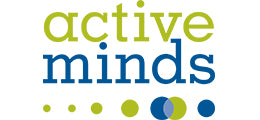"The effects of laughter and exercise are very similar.” –Steve Wilson, Psychologist and Laugh Therapist
I had the pleasure of spending the weekend with my family in the DC area to celebrate Passover. It was a big holiday weekend for many Americans as Christians were participating in Easter festivities. For me, religious holidays are mostly about spending time with my family and taking part in cultural traditions. Last weekend, this meant staying at my older brother’s home full of visiting family members from afar, two shy cats, an adorable dog, and two wonderful children.
It was a recipe for a lot of laughter! From seeing which of the adult family members would be the first to steal a fresh-baked treat made by my nine-year old nephew Jake, to watching my five-year old niece Justine dress the family dog Rico up in various flattering – yet uncomfortable – outfits, there were a ton of laughs shared. Kids certainly giggle a lot, and their laughter is contagious. In fact, a typical six-year old – who’s at the peak of their life’s “gigglehood” – laughs an average of 300 times each day. Adults, however, laugh fewer than 20 times a day.
Psychologist Rod Martin, who specializes in the psychology of humor, explains, “Both adults and children laugh primarily during social interactions with others… Beginning in infancy and continuing to adulthood, laughter appears to be primarily a form of non-verbal communication by which people express their feelings of amusement and joy to one another.” Young children laugh more than adults because they are in the process of learning how to communicate orally and at the same time have many social interactions.
Don’t misinterpret this to mean that we all become grumpy and alone as we age. That’s not the case. However, there is a lot of variation in how often different people laugh. We all know the guy who chuckles at almost everything… typically he has a prominent [read: annoying] laugh. We also know the guy who is dead serious all the time and never laughs. So, who’s better off? Those who laugh more often. As Psychologist and Laugh Therapist Steve Wilson says, "The effects of laughter and exercise are very similar.”
I’m always skeptical of health study findings that suggest that there is causation between a certain behavior and health result, rather than merely a correlation. These studies make great headlines, but may lead us to change behaviors without actually impacting our health. That said, there has been some strong research indicating that the act of laughing has a positive impact on our health across a number of dimensions. Thus, we should all seek ways to laugh more.
Some of the benefits of laughter include:
Reduction in stress hormone levels, which in turn help build up our immune systems.
Lower blood pressure to help avoid heart disease, stroke, and other serious illnesses.
A core workout! When you laugh, your abdominal muscles contract. The next time you laugh, place your hand on your stomach and you’ll feel the contractions.
Burning calories. Now, everything we do burns calories, including sleep. But it turns out that when we laugh, we burn as many calories as if we had walked at a moderate pace. Not too shabby.
Release of endorphins, which serve to as natural pain killers.
Prevents us from getting sick. Laughter activates T cells in our immune systems, helping to ward off impending colds.
For ideas on ways to laugh more (seriously, there’s a list), visit this site.
We'd love to hear from you. How does laughter make you a healthier person? What makes you laugh most? Comment below or on our Facebook page at facebook.com/flytefitness, or tweet us at @flytefitness.
Be Flyte Fit,
Jeremy Greenberg
Co-Founder & CEO
Flyte Fitness
